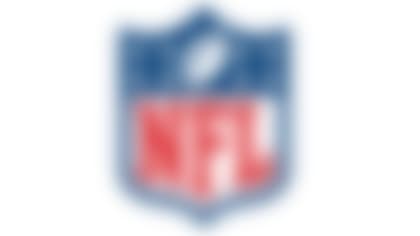This week's best from MomsTeam.com, a website that focuses on health and safety issues for kids sports:
- Nearly a third of patients at two leading sports concussion clinics reported having previously suffered a concussion which went undiagnosed, according to a new study in the Clinical Journal of Sports Medicine. The findings, by Researchers at Boston Children's Hospital and the University of Pittsburgh Medical Center, are significant because failure to diagnose concussions in athletes can lead to further damage to the brain before full recovery, exposing athletes to the cumulative effects of injuries and increased risk of second impact syndrome. While researchers reported no significant differences in gender, mean age, or mean number of previously diagnosed concussions between participants with previously undiagnosed concussions and those without, they found that those with undiagnosed concussions were more likely to have lost consciousness (which studies say only occurs in to 10 percent of concussions) and to report a higher total symptom score with their current injury than athletes who had not been concussed before. Athletes reporting higher total symptom scores after concussive injury were found in a recent study by some of the same researchers to be at increased risk that concussion recovery will take a month or more (as opposed, in most cases, to recoveries taking 7 to 10 days).
- In the latest in MomsTeam "teachable moment" concussion videos, Dr. William P. Meehan III, Director of the Sports Concussion Clinic at Boston Children's Hospital, discusses the basis for his recommendation that athletes playing a sport with a high concussion risk, such as football and soccer, undergo both baseline balance and computerized neurocognitive (NP) testing. In a comment to the video, MomsTEAM Senior Editor Lindsay Barton noted, however, that while baseline NP testing has become increasingly popular, and arms clinicians with individualized baselines to which to compare the results of post-concussion testing when deciding whether an athlete may return to play (RTP), whether baseline testing is necessary is open to debate. While it appears to have advantages over comparative normal values, no studies have looked at this issue with regards to outcomes, and there at least two 2012 studies suggest that age-related norms may be adequate to assist clinicians with management and RTP decisions.
- Speaking of return to play, most sport-concussion experts recommend that athletes who suffer concussion follow a six-step, symptom-limited, process of gradually increased exercise before returning to contact or collision sports. MomsTeam Senior Editor Lindsay Barton provided a comprehensive review of the latest thinking about return-to-play, including the growing body of research that suggests that children and adolescents require a longer rest period and/or extended period of non-contact exercise before return than adults because they have a different physiological response to concussion, take longer to recover, and have other unique risk factors.
- According to SafeUSA, more than 150,000 football players under the age of 15 seek treatment for injuries in hospital emergency rooms each year. According to a recent study, one of every seven severe high school football injuries (e.g. those that result in a loss of more than three weeks of sports participation) are to the hand, finger or wrist. Dr. Mark E. Pruzansky, director of the Manhattan-based HandSport Surgery Institute, and a pioneer in the field of hand and upper extremity surgery and sports injuries, recommended that players be taught movement and skills at a level appropriate for his or her stage of development and wear protective gear - such as elbow pads, tape on the fingers and wrists, forearm pads, and gloves - in order to reduce the possibility of arm, fingers and wrists.
- After eight years of playing against other neighborhood school teams, a Texas youth football player makes the move up to 7th grade interscholastic football. Want to know what the first away game was like for his mom? MomsTeam blogger Gretchen Rose provided an excerpt from her gameday journal on this event.
-- MomsTeam.com and NFLEvolution.com



